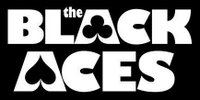
We had our first reference to the Black Aces this week in Ottawa, when the team called up Denis Hamel, Filip Novak, Kelly Guard and Steve Martins from Binghamton. Usually you don't hear about the Aces until the finals, and even then, they seem to only be mentioned once the Stanley Cup championship team has been determined.
I've always been fascinated by Black Aces -- the guys that always stand by during the playoffs, seldom play, but still maintain an necessary role on any squad. I wanted to know the origin of this playoff idiosyncrasy, and there was only one man to ask: Trivia guru Liam Maguire. I emailed him a query, and here was his response:
"The term (Black Aces) originated with Eddie Shore. Shore, as you know, was the owner of the AHL Springfield Indians. He started to call the players who were working their way back into the line-up of his club, his 'Black Aces.' These were players who were coming off of injuries or were being punished. They had run out of luck as far as Shore was concerned. There's a quote in Don Cherry's book written by Stan Fischler, "Anyone who crossed Shore became a 'Black Ace,' In addition to scrimmaging with the team, the Black Aces were required to do odd jobs around the arena such as painting seats, selling programs, making popcorn, and blowing up hundreds of balloons before the ice shows."
Some hockey fans might also associate the term with Ossie and Herb Carnegie, as well as Manny McIntyre. They were an all-black line in the Quebec Senior Hockey League in the late 1940's, and their nickname was the Black Aces. The line in actuality only played together in Sherbrooke, and Herbie was the only one of the trio that ever played for the Quebec Aces. An interesting piece about these pioneers can be found here.
When I asked Liam if there was any correlation between the current-day term and the QSHL's Black Aces, he told me he felt that there was, but there was no factual proof. Therefore the Shore-Springfield Indians' version stands as the original origin of today's nickname.
Search
Archives
-
▼
2006
(191)
-
▼
April
(18)
- When will this opinion be acceptable?
- Has Ray proved his point?
- Foreshadowing?
- Obviously Crawford didn't get the memo
- Are these men sexy?
- Thankfully he didn't elaborate
- Kareem Abdul-Jabbar - Liberal leader?
- Disgusted by speculation and truth
- Sincerely, Marcus Allen -- CBS Sports
- Keith Hernandez to Elaine (and other chicks): "Get...
- The origin of the Black Aces
- Nice job, HF Boards
- Pat Quinn: Goat of the Scape variety?
- Column suitable for ages 18-49
- Tuesday evening deglaze
- Middle finger response
- Wednesday afternoon deglaze
- Question the answers
-
▼
April
(18)
DISH Network
Satellite Dish TV sports action in your own home.



0 responses to "The origin of the Black Aces"
Post a Comment